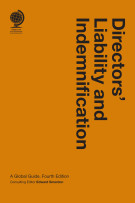
Q. There has been a lot of controversy in the United Kingdom in relation to the environmental impacts of shale exploration. What is your view on the nature/scale of the environmental risks of shale, and on shale development within the United Kingdom?
A. Environmental controversy in the United Kingdom appears to be derived from protest groups opposed to hydraulic fracturing - perhaps originally triggered, in part, by seismic activity said to be related to one operator's hydraulic fracturing. However, in the United Kingdom, regulatory authorities from the Environment Agency to the Department of Energy and Climate Change have been proactive in issuing detailed guidance to try to give comfort to concerned parties, while offering greater clarity of the existing regulatory regime to developers, which regulators believe can adequately address any risks associated with shale gas development. Notwithstanding the foregoing, further regulatory refinement (in addition to recently announced tax incentives) will likely be forthcoming to facilitate further non-conventional appraisal and development in the United Kingdom, given the controversy surrounding this sector.
In the absence of any regulatory change, there is still some potential environmental liability in the United Kingdom for shale projects – for developers and landowners in particular – arising out of operating and decommissioning risks. These risks would customarily be addressed by the parties by way of contractual apportionment of liability, indemnities, financial provision and guarantees, provided that the risks are properly understood and anticipated.
Q Which would you say are the interesting regions for new shale development?
A The United Kingdom is an interesting emerging shale region due to the depth of shale strata and the speed with which regulators have sought to ensure that developers can organise development activity pursuant to, and may benefit from, a competitive regulatory environment. Poland's regulators have similarly now recognised the need to ensure stable regulation, while the European Commission remains concerned to ensure that environmental and other standards are maintained, for the benefit of producing and non-producing members states alike. Saudi Arabia may become the Middle East's most proactive developer of non-conventional reserves, thanks in no small part to Saudi Aramco's apparent discovery of substantial shale and tight gas deposits in Saudi Arabia in the northwest, South Ghawar and condensate-rich shale gas in the Rub’ al-Khali or Empty Quarter. In Africa, the Karoo Basin in South Africa is the focus of much attention, while China's huge non-conventional reserves continue to dominate Asia's focus. In most of these jurisdictions, host government agreements and commercial contracts among co-venturers require significant amendment, and present draftsmen with a raft of new challenges to ensure that development phases, sole risk provisions, infrastructure arrangements and other provisions are tailored for horizontal drilling and the myriad of other issues specific to unconventional developments.
Q. Shale has obviously been a game changer for the United States/North America. What would you say the main impact has been on the US energy scene?
A. The main impact has been on natural gas prices. Natural gas prices continued to rise in the early 2000s, but - coincident with the global financial crisis and increased shale gas production - prices have fallen dramatically and we continue to see such low prices today. Abundant supply has shifted the focus in the United States and Canada from liquefied natural gas (LNG) import to LNG export, and there is now a new wave of projects proposed in the region that may rival Qatari and Australian LNG supply volumes in the future. This is an exciting time for natural gas exporters and LNG consumers alike.






